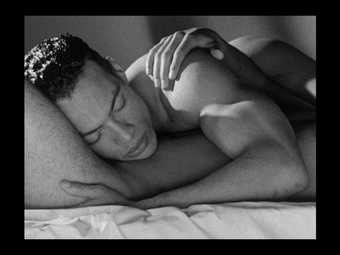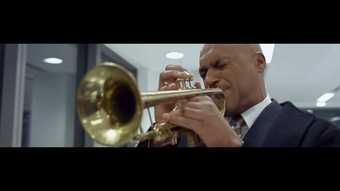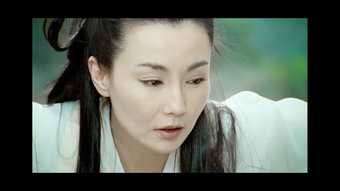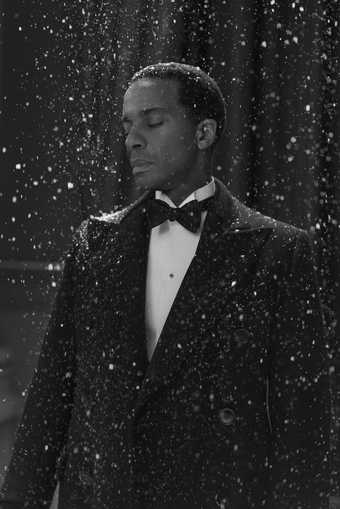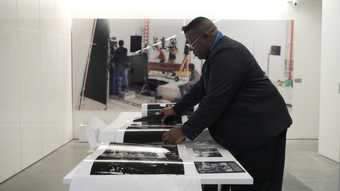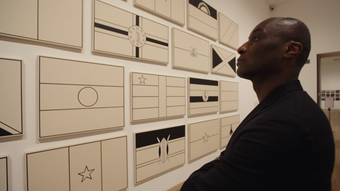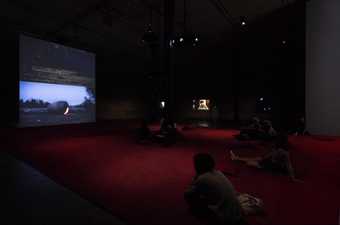If someone was to approach me and to ask me what is my work about, I would say that I'm a poet, that I'm interested in poetry.
And in my work it's very much a sort of poetic quest for a language to express experiences which are part of the everyday experience of people like myself.
Dance, theatre, music, sculpture, painting, all of these different modes of art-making are encapsulated into my practice which is why I chose film as a medium for making my work.
One of the things which I've been involved in at the studio is working on my archive and that entails us going back to early works and trying to think about way of reconnecting them to the present.
‘Looking For Langston' is a poetic documentary and meditation on a poet of the Harlem Renaissance called Langston Hughes. He was one of the most important poets writing at that particular time last.
"Langston Hughes wrote that the ordinary Negro hadn't heard of the Renaissance, and if they had, it hadn't raised their wages."
The work was really in conversation with a lot of the excitement around black independent film and queer cinema. It was very much an artistic statement around black gay desire.
And to transgress the way one was being viewed and seen.
A work that is nearly 30 years old comes, kind of into its time in this new time where we're really gone back to revisiting questions around Black Lives Matter, around the notion of black queer visibility.
We can say that some of these things have become both mainstreamed and at the same time there's a lot of antagonism.
It is very timely to make a work like 'Looking For Langston' become visible to a new generation.
One of the themes of which people tend to look at my work is questions around Black identity and diaspora. But behind a lot of my work is really an underlying theme, which is the theme of capital and labour, and after the crash in 2008 I was very interested in making a work that would somehow explore how that came about.
"Pouring all over you and people calling you greedy."
"What's wrong with greed?"
"Are there angels that are going to run society without greed? Sadly not but we've got to keep the wheels turning."
Capital itself is quite hard to film, it's quite hard to depict, so one can only really depict it by its effects.
"And he sent me to Dubai and it's the beginning of my story."
I'm someone who's very interested in global culture and that begins really my own biography, the fact my parents come from the West Indies from Saint Lucia and I've always been involved in what I see as a global conversation in my work.
One of the things for me in terms of incorporating years of archive is how to articulate it, how to make it signify in a different way from his original intentionality.
'Ten Thousand Waves' looks at the more conveyed tragedy which occurred in 2004 when over 23 Chinese cockle shell pickers died while trying to eke out a living in the Lancashire coast and I was moved by this event. I wanted to make a work that would bring attention to this tragedy that occurred.
We see one lone survivor and it's of course surveillance infrared camera. I was really trying to look at this question of migration, a question that would literally rip Britain apart of recent years we've witnessed.
It's this relationship between the political and the poetic which I'm trying to bring out.
One of the reasons why I'm very interested in the archive and its articulation is really about trying to get to grips with the idea of memory.
That memory is something which is not part of the Black vernacular. It's not recognised in the general culture.
Thinking about questions of, say for example, black gay desire, it's something that doesn't exist in the archive exempt through songs or maybe poems.
Utilising archive for me is very much about trying to look at the ways in which one can think about the present by looking at the past and it enables you to signify a future direction around debates around aesthetics or questions of black identity which continually haunt the present.
